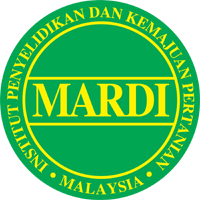Thayalini, K.1*, Nasyah Rita Azira, M. N.1, Thiyagu, D.2, Muhammad Najib, O. G.3 and Mohd Rosly, S.1
Abstract
The livestock industry in Malaysia is a growing industry and to sustain the nutritional requirement of the population, there is a need to rely on imported meat and milk due to insufficient supply. To further grow the livestock industry, it is crucial that sufficient forage crop can be grown locally to meet animal feed requirements in a more sustainable way. Increasing use of agriculture land by including nutrient deficient soils such as beach ridges interspersed with swales (BRIS) soil for forage growth can enhance local feed production, thus reducing the need for more cost-intensive imported feed. In this study, three varieties of forage hybrid sorghum, namely megasweet (MS), brown midrib (BMR) and sugar graze (SG), grown in the nutrient deficient BRIS soil with different planting densities were analysed. The yield for MS was the highest for the first harvest, however, the nutrient contents were not significantly different among the three hybrids. Likewise, for the second harvest, the total yield was not significantly different between MS, BMR and SG. Nutrient quality was also not affected by the planting density between crops, showing suitability of all three forage hybrid sorghum varieties to be grown in BRIS soil to supplement livestock nutritional requirements.
Full text (958KB)
Keywords: hybrid sorghum, BRIS soil, planting density, nutrient quality








